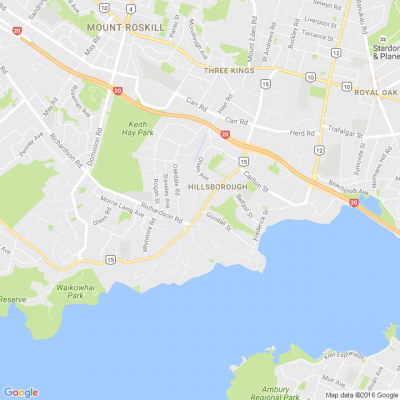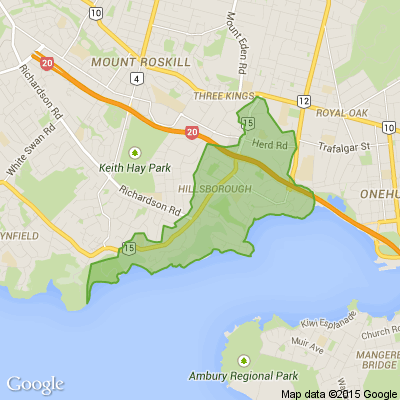How are the minimum wage and the living wage different?
The minimum wage went up about 7% to $22.70 on April 1, while the living wage will rise by 9.9% to $26 from September 1 this year.
Both changes reflect New Zealand's high cost of living at the moment, but the two figures are set by different people and they have different impacts on different groups of Kiwis. Here's what it all means.
What is the minimum wage?
=======================
The minimum wage is a legal obligation, set by the government and reviewed each year. It applies to most employees aged 16 years or over, and it's the lowest amount an employer can pay their employee (before tax).
The Ministry of Business, Innovation and Employment estimates about 222,900 people will see their pay rise with the latest hike.
As well as the adult minimum wage, there's a starting-out minimum wage — now $18.16 — for some 16 to 19-year-old employees who haven't been with their current employer for six continuous months yet, or are still undertaking industry training. It is 80% of the adult minimum wage.
But "if an employee is supervising or training other workers, then the starting-out minimum wage doesn't apply and they must be paid at least the adult minimum wage", the Employment NZ website clarifies.
There's also a training minimum wage — also $18.16 — for certain employees, including many apprentices, who are over 20 and undergoing an approved industry training programme.
It doesn't apply to employees who are being trained at work, and again, it doesn't apply to employees supervising or training others.
Are there any exceptions to the rule?
=============================
Not everyone's pay rate is covered by the legislation that sets the minimum wage.
Migrant workers have the same minimum employment rights as Kiwi workers, but a small number of people with disabilities that affect their work are paid less than the minimum wage.
There is no minimum wage for employees under 16, while "inmates of any charitable institution (who aren't living there just because they're employees) who do any work as inmates" are also exempt, as are prisoners working while in custody.
How's the living wage different?
==========================
The living wage is an opt-in rate, released by a group called the Living Wage Movement Aotearoa New Zealand.
In their words, the living wage "means thriving, not just surviving".
It's currently $23.65, and accredited living wage employers pledge to pay at least that amount to all staff and regular contractors.
Like the minimum wage, the cost of living is a key factor in how it's calculated. It is worked out independently, using the latest data and movement in New Zealand’s average hourly earnings.
Living wage employers must meet certain criteria.
How have the two been tracking?
==========================
Both wages have been rising for years, with the current hikes coming as inflation is close to a 32-year high at 7.2%.
The minimum wage was set at just $8.50 two decades ago, from March 24, 2003.
It hit $13 on April 1, 2011, and rose steadily from there before reaching $20 for the first time on April 1, 2021.
The first living wage in New Zealand was set at $18.40 in 2013. At the time, the minimum wage was $13.75.
The living wage cleared $20 within a few years, set at $20.20 in 2017.
Since September 1 last year, it's been $23.65, and the new rate later this year will be the first time it's cleared $25.
================================================
www.1news.co.nz...
================================================

Auckland Seniors & Travel Expo
Neighbourhood locals are invited to the Auckland Seniors & Travel Expo, a relaxed and welcoming event bringing lifestyle, leisure, and travel together under one roof. Meet 50+ exhibitors showcasing travel ideas, retirement living, mobility solutions, health services, finance, and local clubs. Enjoy live music from Kulios, café seating, door prizes, and be in to win a Luxury Beachfront Escape for Two to Rarotonga.

Lost Cat
SMOKEY
MISSING since 7th Feb 26
Grey green eyes
Very shy
Missing from Dominion road near St Albarns church.
Jan 0274374334
Have you got New Zealand's best shed? Show us and win!
Once again, Resene and NZ Gardener are on the hunt for New Zealand’s best shed! Send in the photos and the stories behind your man caves, she sheds, clever upcycled spaces, potty potting sheds and colourful chicken coops. The Resene Shed of the Year 2026 winner receives $1000 Resene ColorShop voucher, a $908 large Vegepod Starter Pack and a one-year subscription to NZ Gardener. To enter, tell us in writing (no more than 500 words) why your garden shed is New Zealand’s best, and send up to five high-quality photos by email to mailbox@nzgardener.co.nz. Entries close February 23, 2026.








 Loading…
Loading…